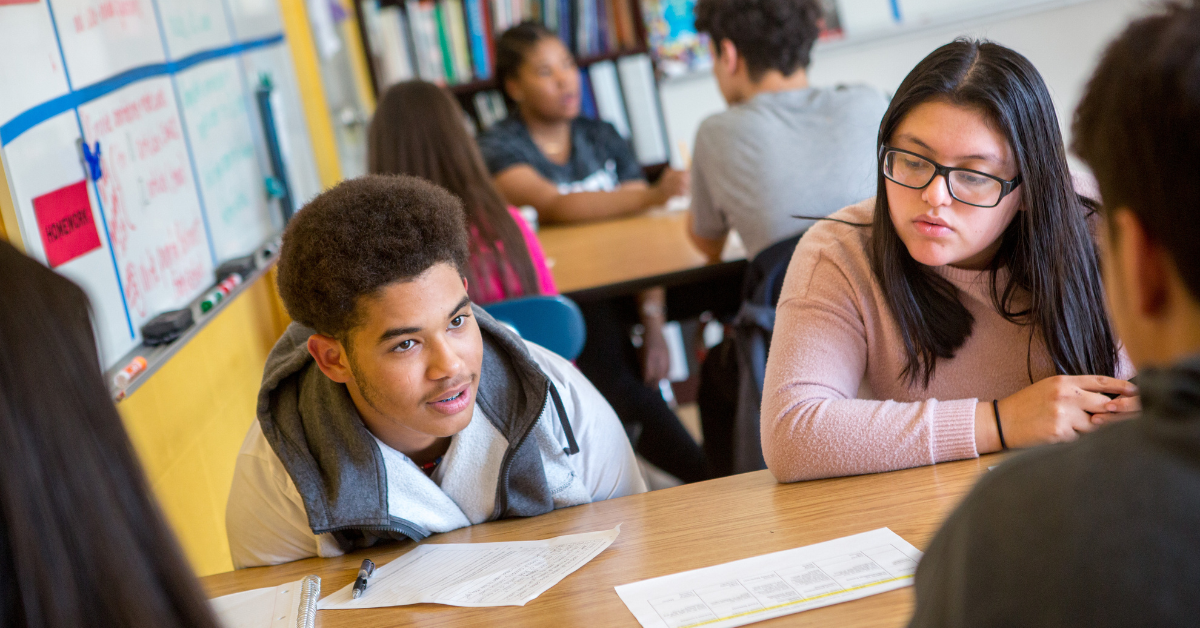
Feb 15, 2023 4:30:00 PM
Jack Schneider and Jennifer Berkshire have written another anti-school choice broadside, but this one has a central claim that isn't as easy to dismiss this time: vouchers aren't an opportunity for the needy as much as a giveaway for fatcats.
They say:
The assault on public education currently unfolding in state legislatures across the United States stands to annually transfer tens of billions of dollars from public treasuries to the bank accounts of upper-income families.
I’ve heard that before; you have too, but stick with me.
Here’s how much of the choice vs. no-choice argument goes with the left.
Typically, the left says choice causes segregation, siphons money from public schools, cherry-picks the best students and leaves the neediest students behind. For the high costs that choice programs saddle districts with, it doesn't get kids into a school that does any better than the public schools they leave. Anything that gives families and students options beyond their local industrialized, unionized and standardized public school is an “attack” on public schools rather than a pathway to hope.
Typically, my response is curt:
Such is the left’s case versus mine.
I’m sure that point-counterpoint volley will continue, but Jack and Jennifer introduce a point outside my choice constellation of defendable school choice positions.
Programs like the one jammed through by the Republican legislature in Iowa this week stand to immediately transfer massive amounts of cash directly from state treasuries to the families that least need it. While proponents, like Iowa Gov. Kim Reynolds, sold the plan as a way to give choices to poor and middle-class families, the program will chiefly subsidize the parents who already send their kids to private schools. The cost of that subsidy is significant—an estimated $340 million each year once the plan is fully phased in—and will be borne by the 500,000 students who attend the state's underfunded public schools.
[…]
And it’s not just in Iowa that Republicans are pulling off this reverse Robin Hood maneuver. In Arizona, where lawmakers recently made all students eligible for school vouchers, 75 percent of the students who applied for the new subsidy never attended public school. The same dynamic is playing out in New Hampshire, where GOP legislators enacted an “education freedom” program over stiff public opposition.
When I first said, “fund students, not systems,” I based that on the idea that the state allocates funds on a per-pupil basis for each student. Because their intellectual development is personal to them, they should have the power to decide how and where it gets spent. It’s the classic public school funds “should follow the student.”
But what if a ghost student outside of the system gets money never earmarked for them?
Theoretically, America should fund every child’s education wherever they choose to learn because it benefits us as a society to have every child become an educated, productive adult. We shouldn’t stop caring about children because they exist outside of the schools we think are best suited for them.
However, subsidizing families who are well off enough to afford a private school education by moving money from school systems that struggle to pay for all the needs of the kids in their systems - the majority of kids - seems like trickle-down edunomics. It only sounds great if you're the one doing the trickling.
While there are a lot of self-reinforcing blusters about the school choice “wave” that is hitting state houses nationally, and I generally support the idea of opening up opportunities for families trapped in education deserts, we’ll need to keep an eye on the fine print when there's an eye-popping stat telling us that 75% of people benefiting from a school choice program were never in the public system.
All the happy talk about equity and the stories of underprivileged kids who overcame their lot by the magic of vouchers falls into question when vouchers become a tool for widening the fortunes between the rich and poor.
The left is wrong about so many things in education. But they are right to keep choice advocates honest about who benefits most from school choice programs.
An award-winning writer, speaker, and blogger, Chris Stewart is a relentless advocate for children and families. Based in outstate Minnesota, Chris is CEO of brightbeam, a nonprofit media group that runs campaigns to highlight policies and practices that support thriving kids. He was the founding Director of the African American Leadership Forum, was an elected member of the Minneapolis Board of Education, and founded and served as the CEO of Wayfinder Foundation. Above all, Chris is a serial parent, a Minecraft enthusiast, and an epic firestarter on Twitter where he has antagonized the best of them on the political left and right. You’ll often see Chris blogging at citizenstewart.com and “tweeting” under the name “Citizen Stewart.”
Few issues in education spark more tension and debate than standardized testing. Are they a tool for equity or a burden on students? A necessary check on school systems or a flawed measure of...
Charter schools are public schools with a purpose. Operating independently from traditional school districts, they're tuition-free, open to all students, and publicly funded—but with more flexibility...
Despite the benefits of a diverse teaching force, prospective teachers of color fall out of our leaky preparation pipeline at every stage: preparation, hiring, induction, and retention. Here’s what...
Ed Post is the flagship website platform of brightbeam, a 501(c3) network of education activists and influencers demanding a better education and a brighter future for every child.
© 2020-2025 brightbeam. All rights reserved.
Leave a Comment